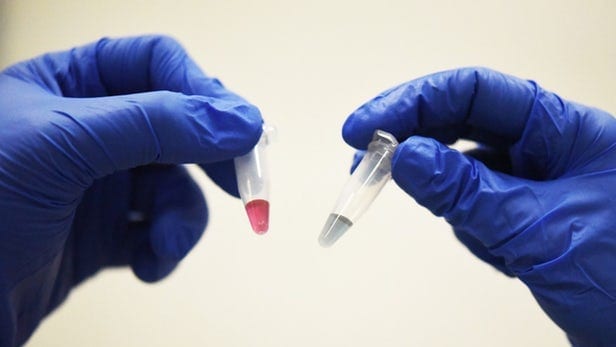
Researchers led by Dr. Alex Lehrer at the University of Hawaii (UH) medical school have successfully developed a vaccine candidate for the Zika virus, showing that it is effective in protecting both mice and now monkeys from the infection.
Dr. Lehrer thinks the vaccine his team proposes might be safer that other candidate vaccines, especially keeping in mind that pregnant women constitute a significant part of the target population for a Zika vaccine.
Demonstrating the effectiveness of the vaccine candidate in monkeys (non-human primates) is an important milestone because it typically predicts the vaccine will work in humans, enabling further clinical development.
A strong global initiative to battle Zika has produced more than 30 vaccine candidates since outbreaks in 2015-2016 in Brazil linked the infection in some pregnant women to severe birth defects in their newborns. Zika is spread by the bite of infected mosquitos and through sex.
The proposed vaccine reported by scientists at the UH John A. Burns School of Medicine (JABSOM) in the journals Frontiers in Immunologyand mSphere, an open access journal of the American Society for Microbiology, is a recombinant subunit vaccine that uses only a small part (protein) of the Zika virus, produced in insect cells.
“We believe our vaccine candidate shows much promise particularly as it showed to require only two immunizations given three weeks apart and is a potentially safer alternative to other candidates already in clinical trials,” said Dr. Axel Lehrer, JABSOM (Assistant) Professor of Tropical Medicine and Infectious Disease.
Lehrer thinks the vaccine his team proposes might be safer that other candidate vaccines, especially keeping in mind that pregnant women constitute a significant part of the target population for a Zika vaccine.
The research team at JABSOM included two senior graduate students who served as lead authors of the scientific research papers. Liana Medina, whose early training was directly supported by a National Institutes of Health Diversity in Health-Related Research grant, and Honolulu native Albert To are the graduate student lead authors.
Honolulu-based Hawai’i Biotech is a key partner in the vaccine development project with UH. Two of their scientists, Dr. Jaime Horton and David Clements, contributed to the most recent publication demonstrating vaccine efficacy in monkeys, along with collaborators from Bioqual Inc. of Rockville, Maryland, and the Department of Diagnostic Medicine/Pathobiology, Biosecurity Research Institute, College of Veterinary Medicine, at Kansas State University.
“The intense search for a Zika remedy since early 2016 has required us to be agile, and we believe our vaccine candidate research demonstrates that such quick-turnaround results can be achieved in academic and scientific partnerships here in Hawai’i,” said Dr. Lehrer. “It is incredibly gratifying that two of the scientists we are training to be the future of biomedical science played key roles in gathering, analyzing and reporting their conclusions. We hope Hawai’i’s citizens find that as inspiring as we do.”
Graduate student scientist and research co-author Liana Medina said there were chances to develop new skills at every step along the way. “Having the opportunity to see the vaccine’s development from its very first stages as Zika E protein being produced by Dr. Kenji Obadia, at the time also a student in our department, to a vaccine that is efficacious and safe in animal models was a unique learning experience. Being a part of the process allowed me grow as a student in this field,” said Medina.
Fellow graduate student and co-author Albert To said the team’s results “put us on the world-stage and highlight the talent we have here in Hawai?i.” He said, “Being involved with this project has given me a glimpse of the type of research and results needed to progress an idea to a potential preventative therapy used by thousands of people worldwide.”
The Latest on: Zika virus
[google_news title=”” keyword=”Zika virus” num_posts=”10″ blurb_length=”0″ show_thumb=”left”]
via Google News
The Latest on: Zika virus
- NYC ranks 2nd worst city for mosquitoes. Find out who's first.on May 20, 2024 at 7:40 am
A new report from Orkin ranks the worst cities for mosquitoes, with New York coming in second and Los Angeles taking the top spot.
- Zika Virus Research Newson May 18, 2024 at 5:00 pm
Oct. 25, 2023 — Zika virus infection in pregnant rhesus macaques slows fetal growth and affects how infants and mothers interact in the first month of life, according to a new study. The work ...
- Zika and Dengue Infections Differentiated Using Epitope Surrogate Technologyon May 15, 2024 at 10:40 am
New synthetic "epitope surrogate" biomarker technology differentiates between prior Zika and dengue infections.
- New synthetic biomarker technology differentiates between prior Zika and dengue infectionson May 14, 2024 at 7:47 am
A newly discovered Zika virus-specific synthetic molecule is capable of differentiating Zika-immune patient samples from samples of patients previously infected with the related dengue virus. The ...
- ZIKA VIRUSon April 9, 2024 at 4:44 pm
Zika virus is something which is something like a priority virus for which both preventive measures have to be taken. There are efforts now to develop a Zika vaccine in this country and we are ...
- Zika virus could potentially treat childhood cancer, finds studyon January 11, 2024 at 5:35 am
In a significant development, a team of US researchers has successfully used Zika virus to shrink or eliminate neuroblastoma tumours in mice, raising the possibility of the virus serving as a ...
- Zika virus explained: What are the symptoms?on April 13, 2022 at 4:29 am
The fast evolving Zika virus could become more infectious evade pre-existing immunity, warn scientists. Symptoms of the virus are usually mild in adults however it can infect a developing foetus ...
- Zika Viruson December 18, 2020 at 6:52 am
Zika virus, first identified in 1947 in Uganda, had been thought to produce a rare and mild disease until it suddenly emerged in Brazil in 2015 and spread explosively through South America, Central ...
- Zika Virus in the United Stateson May 23, 2016 at 5:00 pm
On February 1, 2016, the World Health Organization declared the spread of the Zika virus an international public health emergency. To date, the virus has infected more than 1 million people in ...
via Bing News











